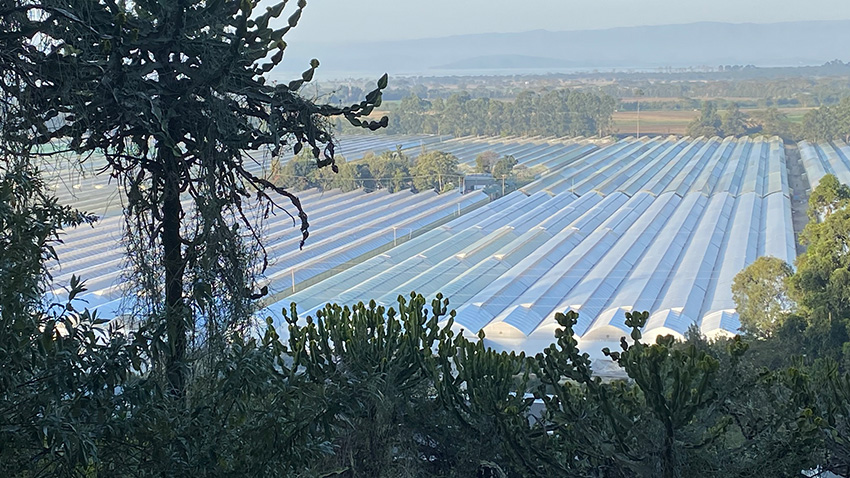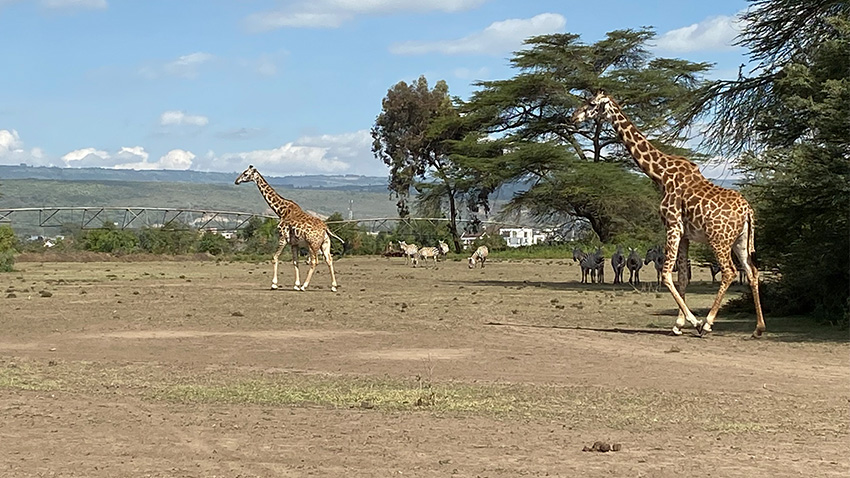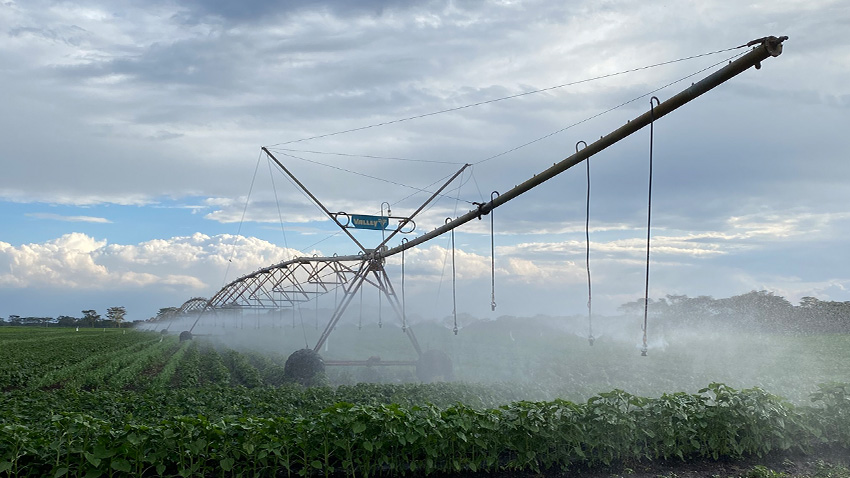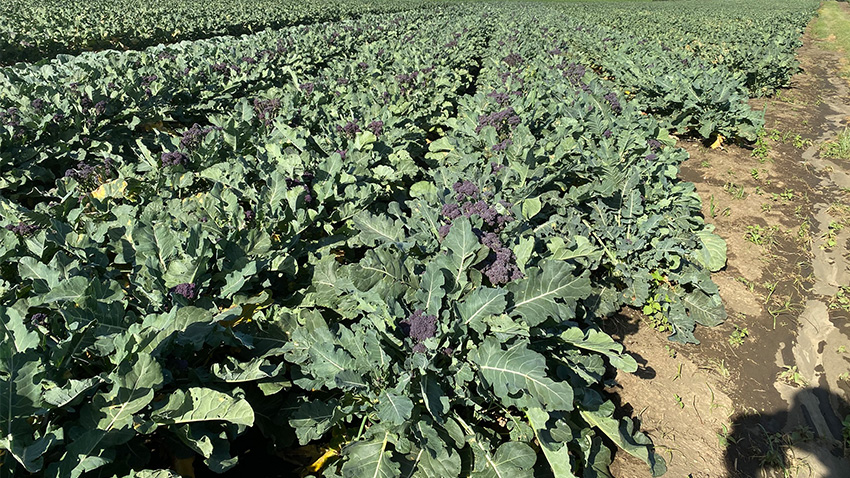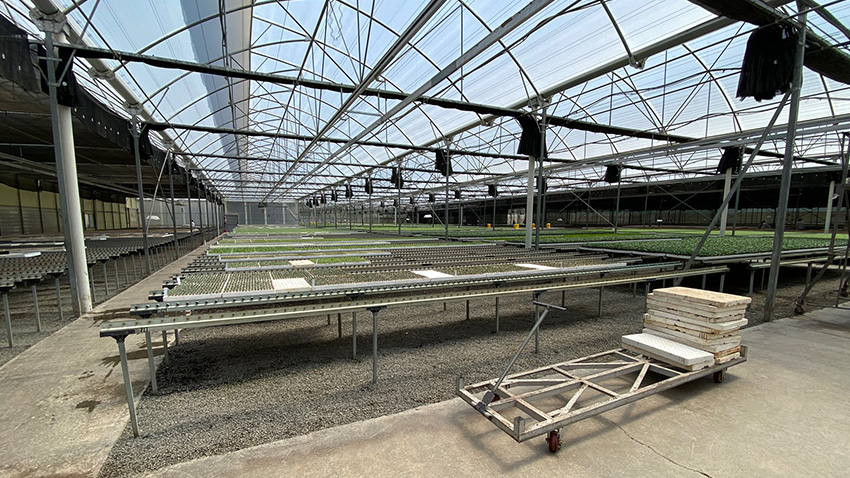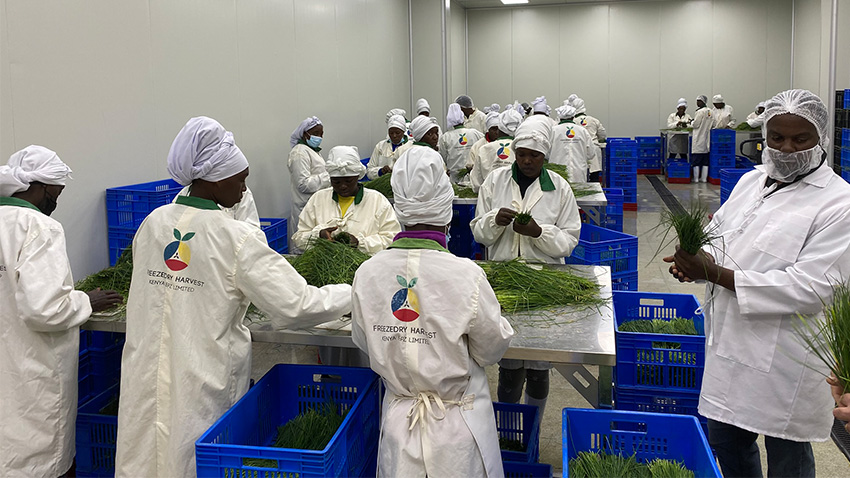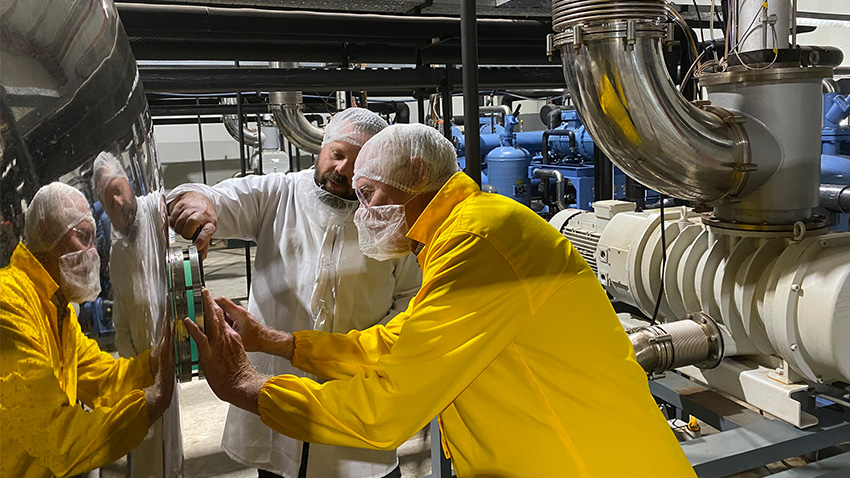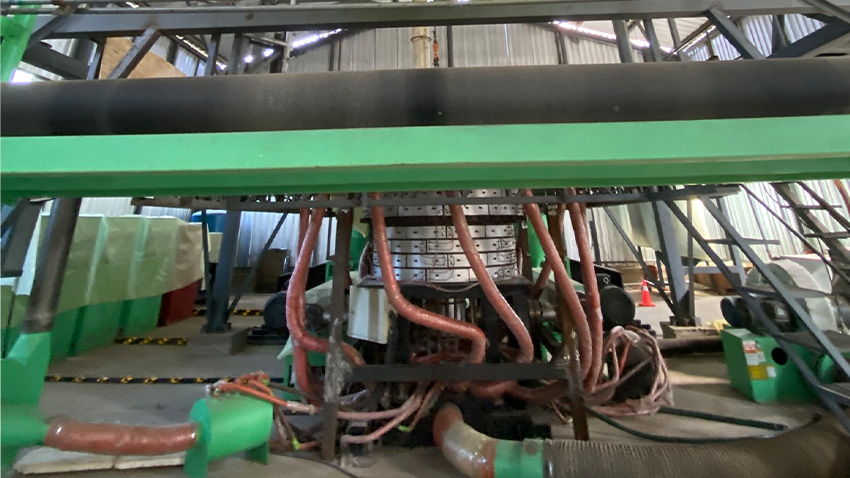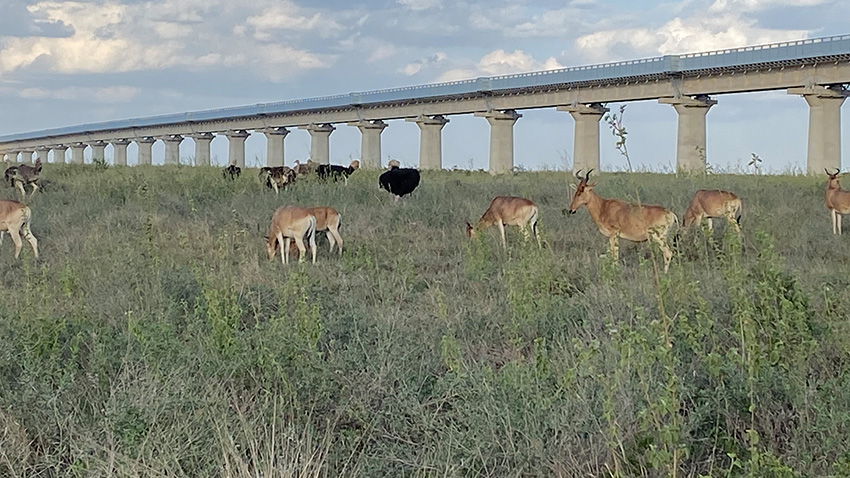In October 2025, I visited the town of Naivasha, north of Nairobi in the central highlands of Kenya in East Africa. I took the trip to confirm whether a potential site for a center pivot irrigation system was suitable. If the site is viable and once the pivot’s up and running, DWFI will be a research partner in understanding whether it can support Kenyan farmers and boost local industry.
Center pivot irrigating high-value vegetables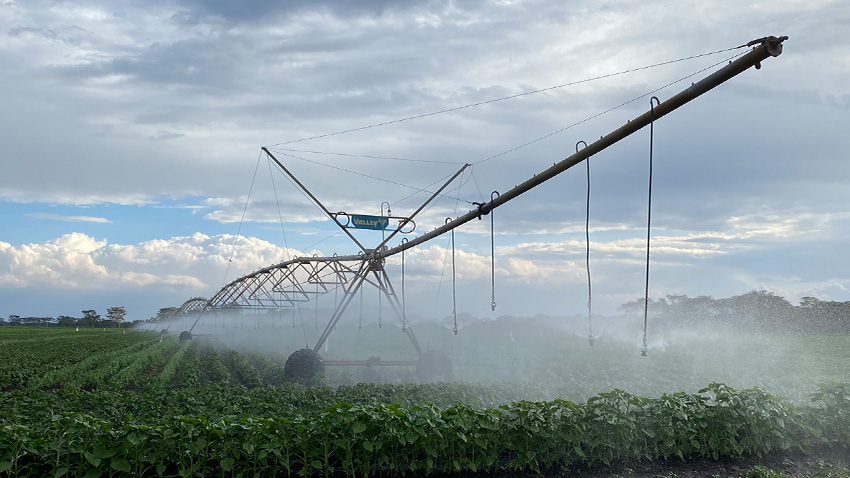
The proposed pivot site checked out: it is close to water, has reasonable soil and there is local support for the project, abundant (renewable) energy and adjacent markets that will buy what it’s going to grow. I’d done my homework before I left Nebraska so none of this was surprising. What I didn’t expect was to find such a thriving hub of agribusiness in Naivasha and its surroundings.
Naivasha is a town of about 200,000 people on the banks of Lake Naivasha in the African Rift Valley. The town is at an altitude of about 6,100 feet above sea level, giving it a temperate climate. It’s near the equator so it gets year-round sunshine, meaning crops can grow continually if they have enough water. The water in Lake Naivasha is fresh and groundwater is relatively abundant. The lake level is currently the highest it’s been in years.
The agricultural areas surrounding Naivasha are a center for a thriving cut flower, fruit, vegetable and other high-value crop industry. Most of the crops are irrigated using either lake water or groundwater. Electrical power comes from renewable geothermal sources. Flowers and delicate fruits such as strawberries are grown in rows of greenhouses. Avocados, and vegetables such as purple broccoli and French beans are grown in fields under center pivots. Pickers sometimes must shoo away herds of zebra before they start work!
Much of the produce is shipped by air to the markets of Europe and the Middle East. Many specialist enterprises exist in the area to support agriculture, including seedling production, greenhouse plastic manufacturing, insulated warehouse siding panel fabrication and vermiculite production. A sophisticated freeze-drying plant is also in the final stages of setup. People come from all over Kenya to work in the greenhouses, processing plants and other industries. Specialists from India, Israel, South Africa and other countries join Kenyan experts in scientific management of the enterprises.
Small to medium sized commercial agriculture underpins national economic growth and transformation. This is one reason why the Kenyan government is so supportive of Naivasha and its agro-industries. Commercial centers like the town of Naivasha draw in and employ workers; create economies of scale for other industries to thrive; earn export revenue; and boost local skills and knowledge. Farm workers and business owners create demand for other goods and services, helping to create virtuous circles of growth and economic dynamism. There is also a need for high-tech advice and partnerships.
Employment opportunities in agro-processing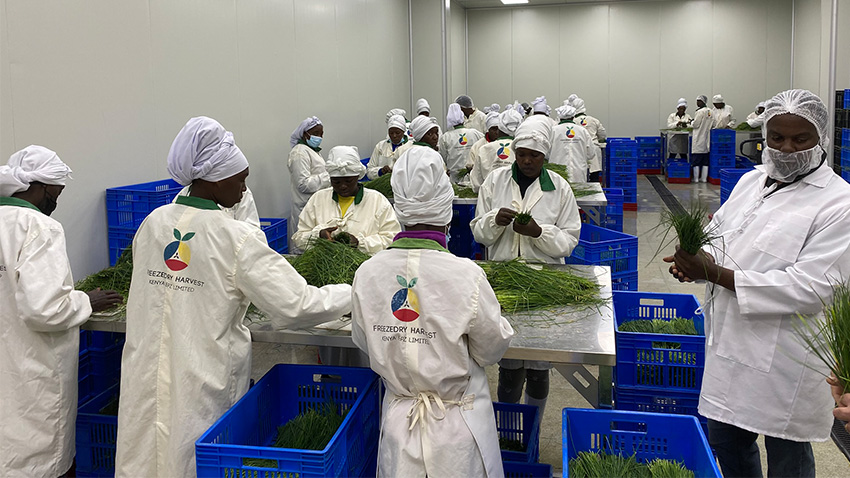
Naivasha and its agro-industries hold significant research potential across multiple departments at the University of Nebraska (NU). The Naivasha area serves as a “natural laboratory” of agriculture-led employment and economic growth. It provides unique, real-world data and insights that researchers and students can apply globally, complementing existing NU research sites in Kazakhstan and India. This collaboration creates direct demand for Nebraskan agricultural expertise, as local businesses are eager to partner with the University to resolve critical technical issues, such as pest control; optimizing greenhouse humidification; reducing water use; and estimating the social and health gains of increased employment opportunities. At the same time, the partnership could strengthen NU’s global reputation and open doors for new research grants and publications. It also provides an opportunity for researchers and students to learn about the local factors that contribute to agriculture-led economic growth in the heart of Africa, with potential to replicate in other regions.
Naivasha, and Kenya generally, is also a pleasant place to work. Students and faculty can find comfortable places to stay, good food, reliable partners and many different opportunities for study. And on days off, the wildlife in Kenya is simply astonishing – I don’t think I’d ever get used to seeing herds of giraffe walking past; an eland cow waiting its turn to nibble on hay left out for cattle; or a herd of warthogs running across of a field with their tails in the air. The lake is too cool for crocodiles to thrive, but swimming is still not recommended - hippos are everywhere and are best seen safely from a boat!


